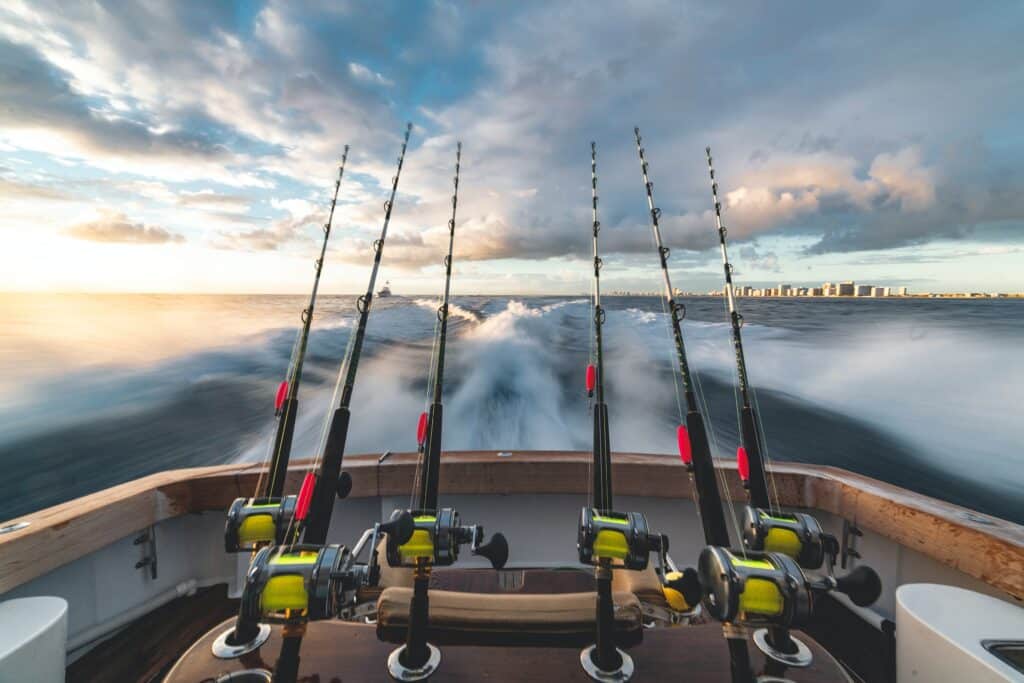

Just when you think you understand the full potential uses of AI, another case study pops up to show just how widespread its usage – and potential usage – is.
AI is used in too many industries to keep track of and following its progress can be a fascinating form of entertainment in itself. One area in which we’re seeing the growing implementation of this technology is one of the world’s most traditional sectors.
So just how is the fishing industry making use of AI to enhance its capabilities?
Clearly, these efforts are leveraged by commercial enterprises, as opposed to those who fish for recreational purposes. The relationship between technology and fishing has been seen in recreational settings, too, though.
Take the context of online gaming: creators of digital slot games often use aquatic themes as a source of inspiration.
We see members of casino platforms playing free spins on games such as Crabbin’ for Cash and Big Bass Splash, accessing bonus features that provide them with the opportunity to catch prizes.
Players don’t need to be fishing aficionados to play these games, but their broad appeal isn’t lost on those who are. And we can’t forget TV shows – River Monsters, Trawlermen’s Lives, Fisherman’s Apprentice and more – have long captured wider viewerships.
Returning to the more commercial side of fishing, though, it’s important to note that the use of AI in fishing hasn’t come out of nowhere. For example, electronic monitoring has been in place for over a decade now.
This technology has long enabled fisheries to chart migration patterns, and therefore accurately predict the areas in which various types of fish will congregate, adjusting their activity as appropriate to ensure fishing practices can continue.
Furthermore, this technology also serves to provide visibility of population size, growth rates, and notable changes in fish behaviour, allowing fisheries to make informed decisions on whether fishing in certain locations remains a sustainable practice.
AI is building upon that and in the last couple of years, facial recognition software for fish has come on leaps and bounds. Like many human facial recognition techniques, it is based on “rotated object detection.” Its aim is to allow fisheries even more visibility of their fish to understand how to optimise their processes. Combined with other AI technologies, similar to those used in agriculture, fisheries are looking at a future in which they can operate more efficiently and effectively. And then there’s CatchCam, a surveillance solution produced by UK-based fishing machinery specialists SafetyNet Technologies, that enables users to tap into a live underwater feed, supporting fisheries to be more precise in the delivery of sustainable methods.
To a lesser extent, we also witness the presence of robotics and automation systems within the fishing industry, although they tend to exclusively feature in manufacturing processes.
Automated machines can be programmed to perform repetitive tasks in an accurate and consistent manner, and therefore offer an ideal solution for those who manage the organisation and packing of seafood items. Moreover, by relying on electronic rather than gas-powered methods of production, fish suppliers are able to reduce their carbon footprint.
Due to the advancement of AI-controlled or -enhanced practices, it looks like fishing is another sector in which artificial intelligence is set to stay.
If you are interested in even more technology-related articles and information from us here at Bit Rebels, then we have a lot to choose from.
The healthcare industry is at a crossroads. As technology continues to revolutionize the way we…
Dennis Pappas is a landscape architect with a clear mission—make cities greener, healthier, and more…
In the fast-paced world of technology, David Bellini stands out not just for his innovations…
Shotgun shells are not one-size-fits-all. Whether used for hunting, home defense, or sports, the proper…
Have you ever wondered whether medical cannabis could be an option for your health concerns?…
Assuredly, planning for senior care offers an opportunity to find peace and security for the…